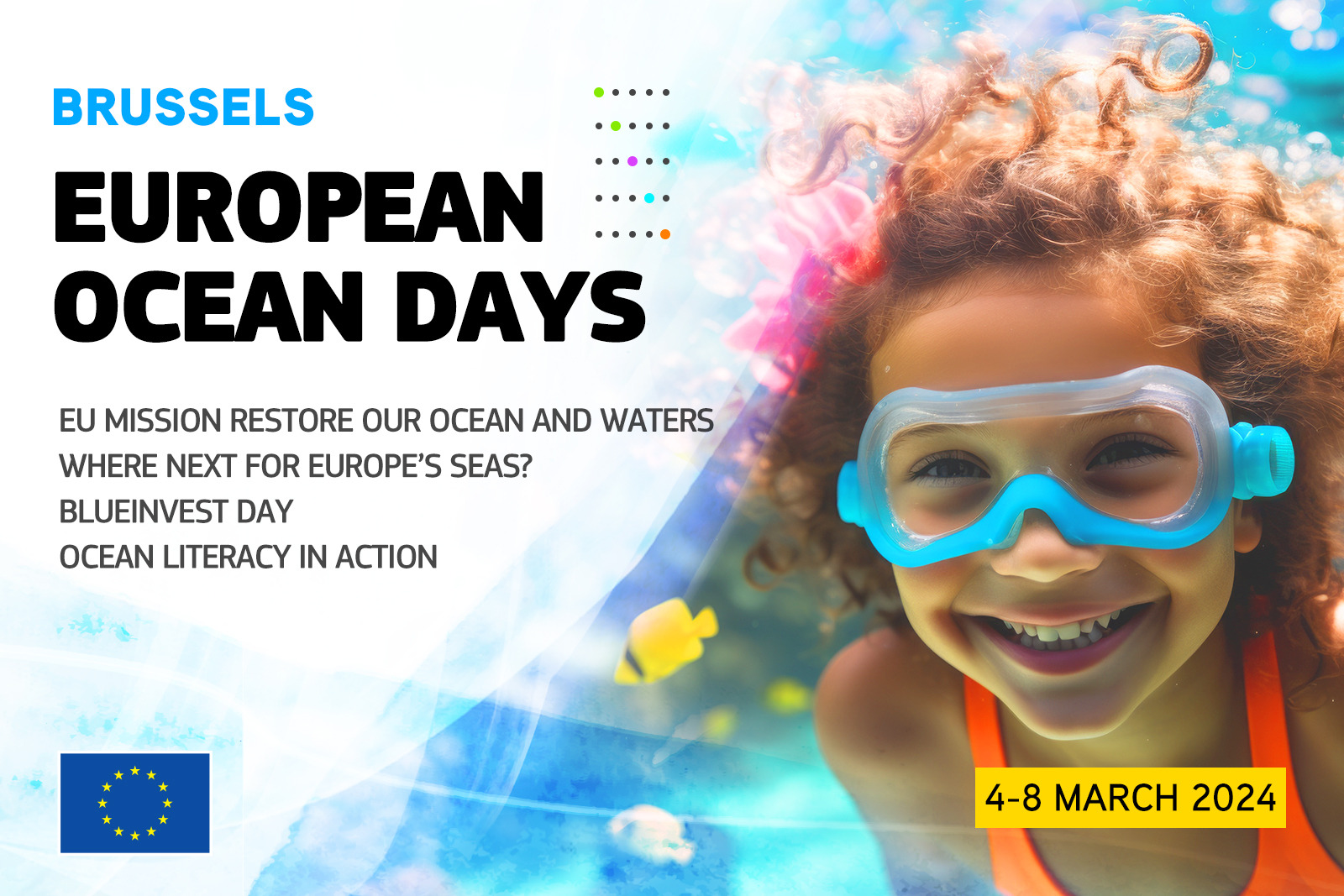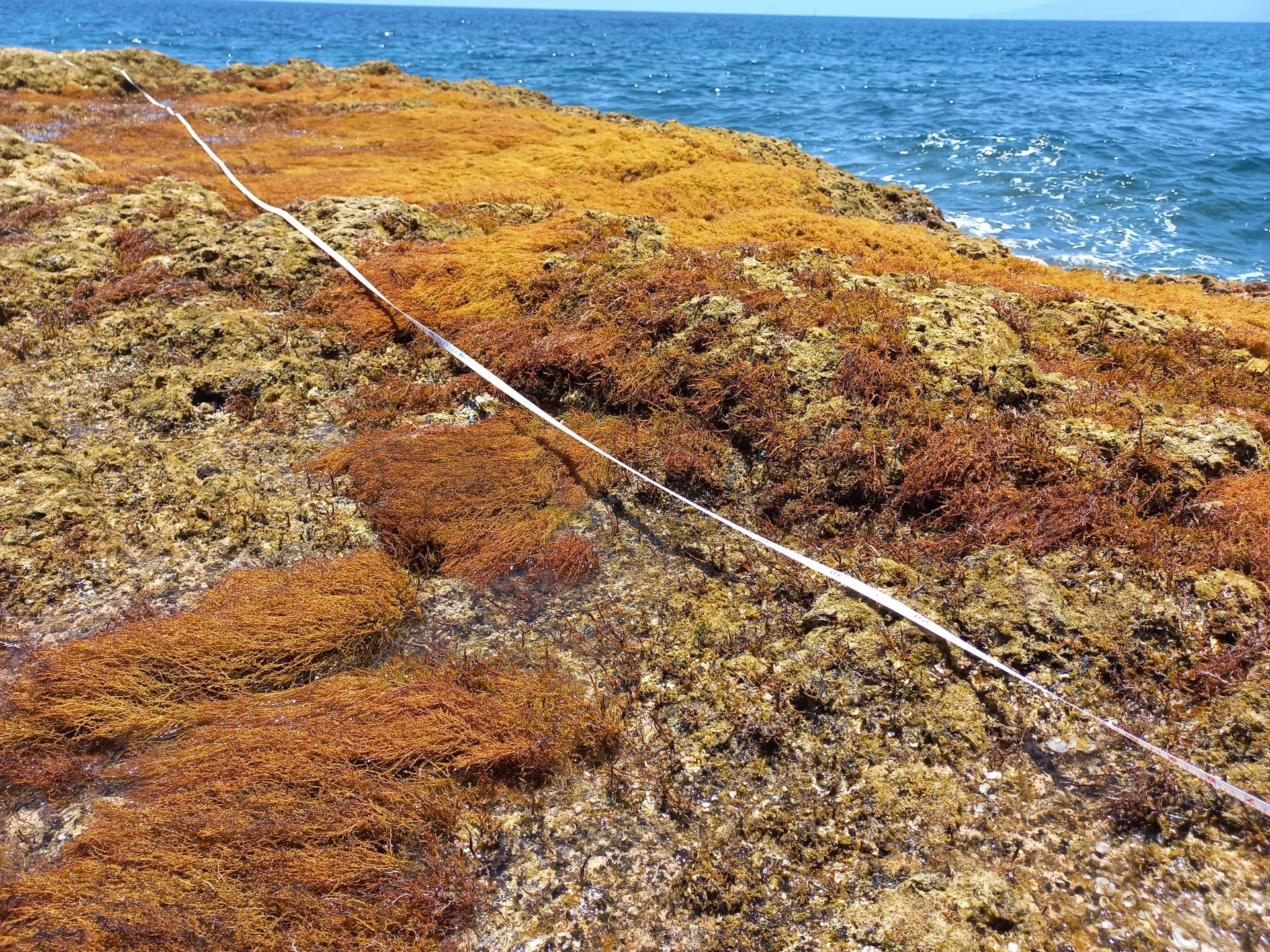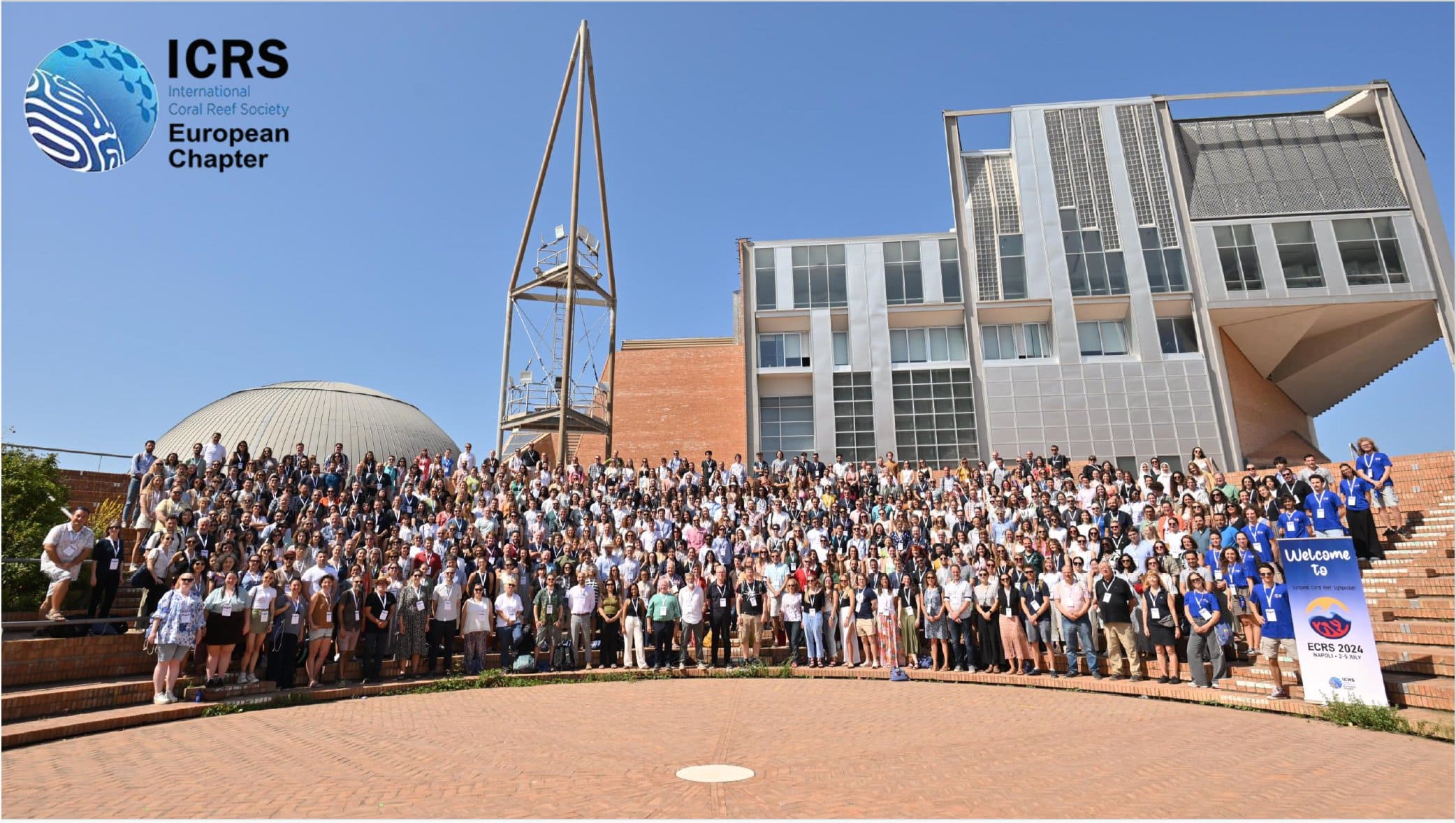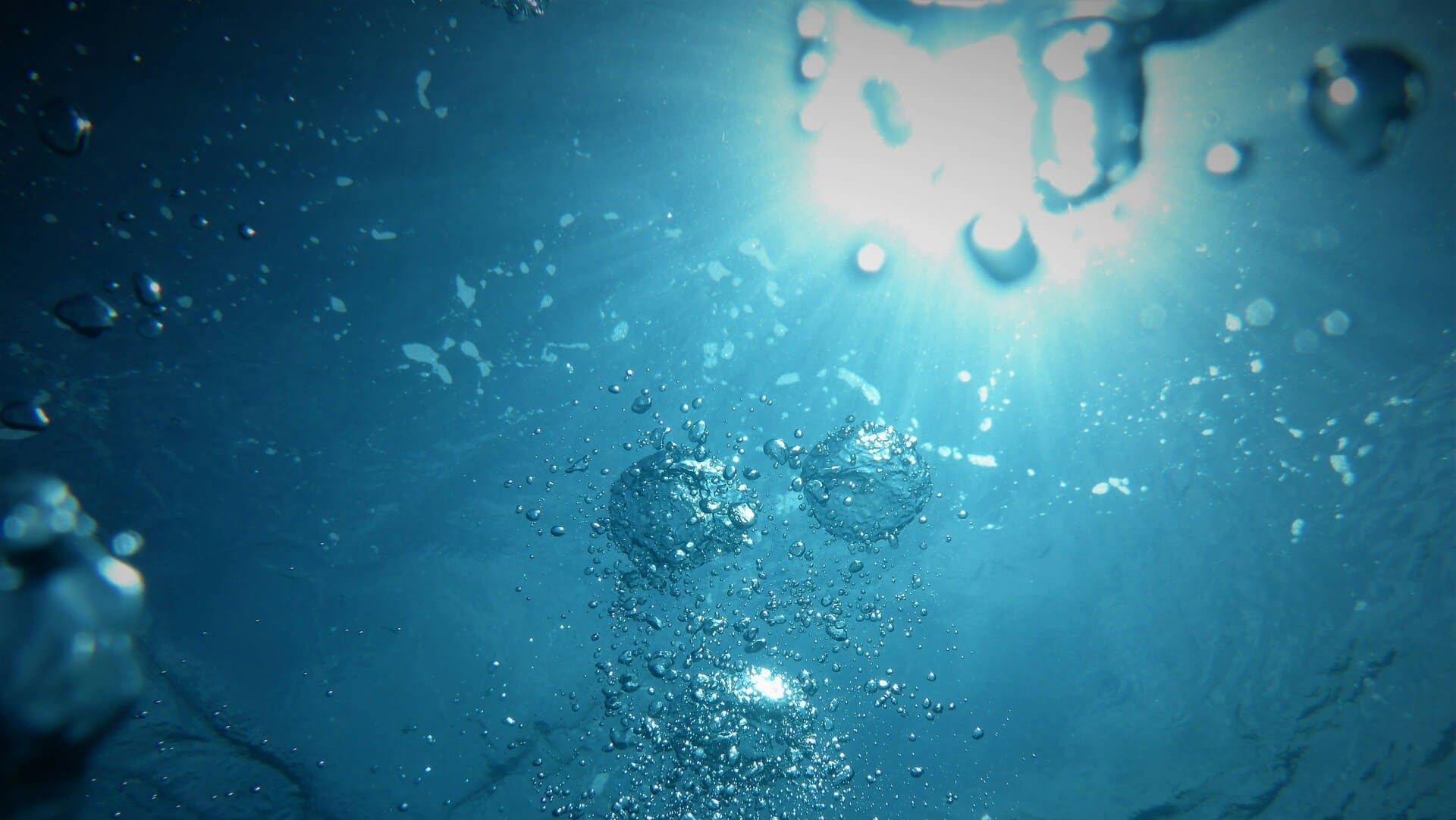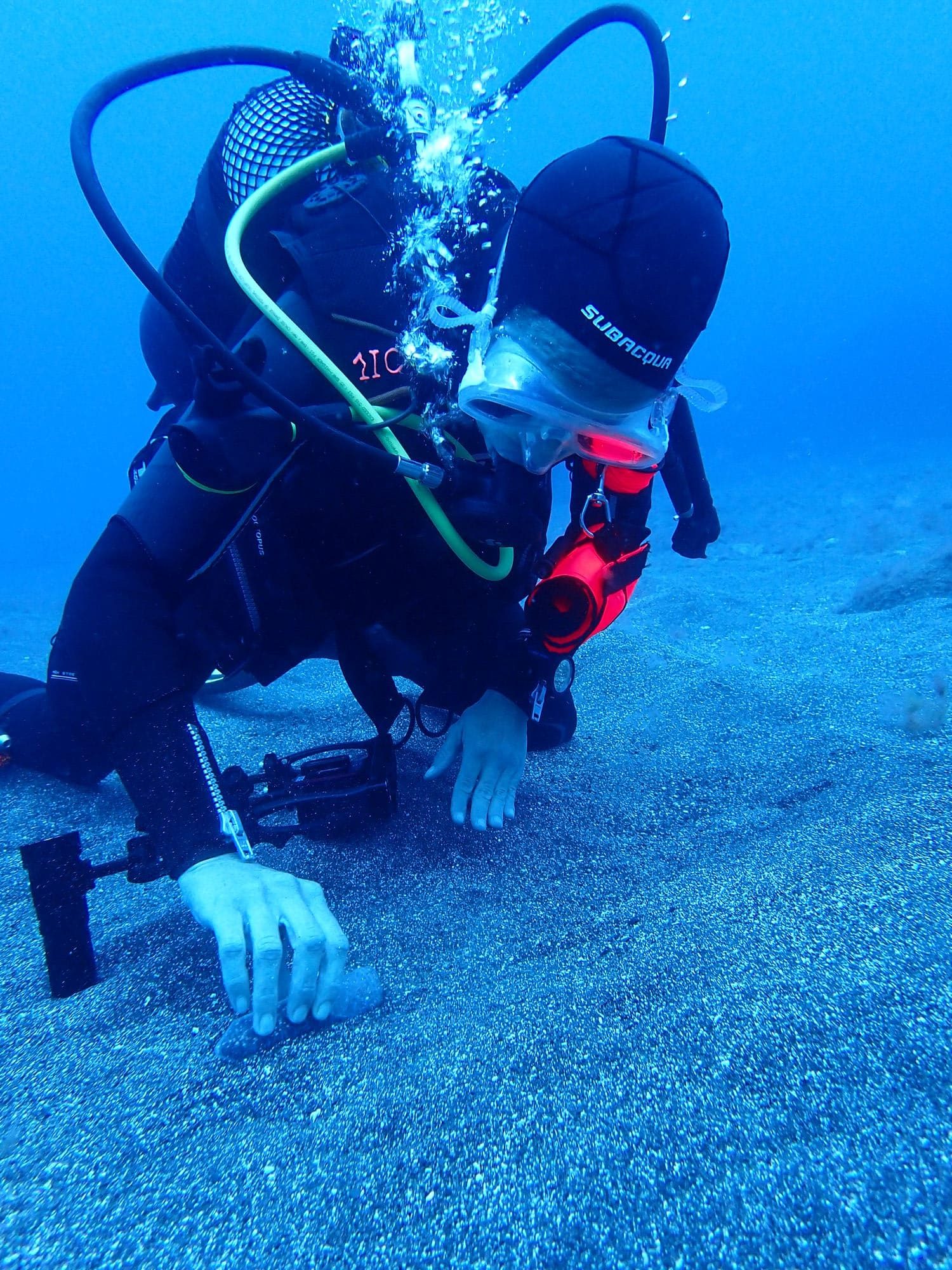From March 4th to 8th, Brussels hosted the first edition of the European Ocean Days, a week-long event dedicated to exploring key issues surrounding Europe’s seas. The event covered, on separate days over the week, the EU Mission Ocean and Waters, future priorities for Europe’s seas, Blue Innovation and investment opportunities, as well as Ocean Literacy activities.
As OCEAN CITIZEN, we were excited to be part of this ground-breaking initiative, which gave us a unique opportunity to present our project, engage in discussions with different stakeholders and discover new initiatives centred around urging topics in ocean conservation across Europe.
Before the physical gathering, we participated virtually in the 2nd Mission Ocean Forum. This session not only highlighted the progress and achievements of the Mission Ocean but also facilitated valuable networking opportunities with colleagues from other projects.
Amidst the many discussions, meetings and events that made up this European week dedicated to the oceans, our first stop was the ‘Where next for Europe’s Seas’ session. This meeting, held on March 6th, consisted of four participatory sessions about global drivers, economics, social issues and innovation. It provided a platform for insightful discussions on shaping the future of Europe’s marine environment. One of the main takeaways from this session was the urgent need for a comprehensive ‘Blue Deal’ that integrates global drivers, economy, society and innovation to ensure a sustainable future for Europe’s oceans – a view that resonates deeply with our mission.
During this session, OCEAN CITIZEN showcased its strong focus on effective communication strategies and co-creation through a poster presentation on the importance of communication in European projects. The poster’s goal was to demonstrate how prioritising communication from the very beginning can help maximise the impact of our project and effectively engage and raise awareness to promote ocean literacy. The poster illustrated how OCEAN CITIZEN has used innovative co-creative processes and a creative storytelling approach to explain complex scientific concepts and aims to serve as an example for other Horizon Europe projects.

Our involvement continued the next day with the 2nd EU Blue Parks Community Meeting, where we explored the effective management of marine protected areas and coastal zones. This workshop, held on March 7th, focused on promoting a comprehensive understanding of the effective management of EU Marine Protected Areas (MPAs), including the crucial coastal zones and the dynamic land-sea interfaces. It brought together experts and stakeholders to discuss and share insights on the challenges and opportunities in protecting and restoring marine and coastal biodiversity.
The workshop highlighted key EU-funded projects and research innovations for effective marine management through presentations, case studies and interactive discussions. It addressed policy development needs and explored participatory approaches from EU Member States and regional and local stakeholders. This immersive environment provided us with valuable insights and opportunities to contribute to the ongoing dialogue on marine conservation efforts across Europe.
During this meeting, represented by Lorenzo Bramanti from LECOB-CNRS, we presented our innovative multidisciplinary approach to the regeneration of marine forests for the management and protection of the oceans.
The presentation also emphasised that any process to restore marine ecosystems should prioritise recovering and preserving the many functions provided by the ecosystem. A marine animal forest is far more than just a group of corals; it embodies essential ecological functions facilitated by the formation of dense canopies, which in turn create a microclimate. This microclimate, characterised by variations in parameters such as temperature, light, and organic matter, leads to the establishment of microhabitats, ultimately enhancing biodiversity. Successful restoration necessitates not only the recovery of individual components but also the promotion of natural interactions and balances essential for sustaining the health and vitality of marine animal forests as a unified entity.

Participating in these events was an excellent opportunity to contribute to and learn from discussions on research and policy developments focused on the effectiveness of marine protection across Europe. By demonstrating our innovative storytelling approach and commitment to multidisciplinary collaboration, we illustrated the spirit of cooperation and collective action needed to address the oceans’ challenges.
As we reflect on our experience at the European Ocean Days, it has been the perfect occasion for fostering synergies and advancing the conservation of Europe’s marine ecosystems. OCEAN CITIZEN will continue strengthening its commitment to effective communication and cooperation, recognising that it is only through cooperative action that we can secure the future of our oceans.
